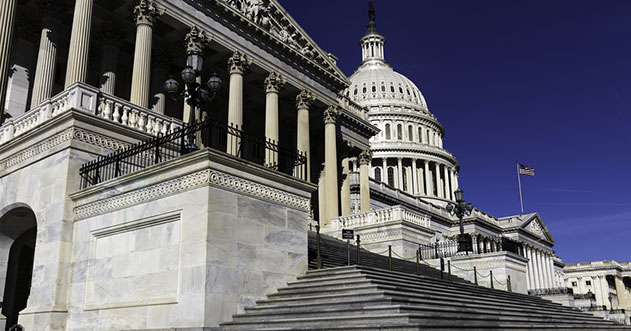Lest anyone think that last week’s announcement that the Federal Housing Administration will cut its annual mortgage insurance premiums was a harbinger of more cuts to FHA fees, U.S. Department of Housing & Urban Development Secretary Julián Castro told a crowd in Washington, D.C. that no further FHA fee reductions are under consideration.
Speaking Tuesday at the National Press Club, Castro said that once the FHA reviewed its latest actuarial report on the Mutual Mortgage Insurance Fund for single-family programs, which showed that the MMI fund is “back in the black,” the administration made the decision to cut the FHA annual mortgage insurance premiums by 50 basis points, from 1.35% to 0.85%.
“The National Association of Realtors estimates that nearly 400,000 creditworthy borrowers were priced out of the housing market in 2013 because of high premiums,” Castro said.
“We expect our premium reduction to help more than 2 million borrowers save an average of $900 annually over the next three years,” Castro added. “It will also encourage nearly a quarter million new borrowers to purchase their first home.”
Castro said that the insurance premium cut is a “common sense step,” adding that FHA’s premiums will still be 50% higher than pre-crisis levels.
“This premium change only makes an FHA loan more affordable for qualified families,” Castro said. “All other FHA requirements will remain the same, including verification of a person’s ability to pay. Families still have to qualify for an FHA loan, but when they do, they will find a more affordable path to homeownership waiting for them.”
By bringing the costs of an FHA loan down, “we’re helping folks lift themselves up and expanding opportunity for generations of Americans,” Castro said.
“America’s got momentum,” Castro said. “The housing market is coming back as an engine of economic prosperity. Families are looking to the future with increased optimism.”
He also said that it was time to remove the stigma of promoting homeownership.
“Some have been surprised by this focus,” Castro said of the FHA premium cut. “A few have even suggested that this is a return to the mania that fueled the crisis. It’s not. The answer isn’t to deny responsible Americans homeownership — it’s to do it right.”
Castro told the assembled crowd that HUD plans to build on the progress that’s been made in the wake of the financial crisis, but that the lending environment is still too tight and a “sensible balance” must be struck between the too-lax lending standards of the past and the over-corrected tightness of the current environment.
“Our nation is smart enough to heed the lessons of the past without forsaking our future,” Castro said, calling the pre-crisis lending environment the “wild, wild west.”
Castro told the crowd that he believes homeownership is “still the cornerstone of the American dream” that provides “both a nest and a nest egg.”
Castro said that HUD “stands ready to make 2015 a year of housing opportunity.”
During the question and answer session after his speech, Castro was asked whether he thought that the newly installed Congress will take on housing finance reform this year.
“I don’t think anyone can tell right now,” Castro said, adding that the Obama administration “remains committed” to the principles of the Johnson-Crapo bill, which calls for the wind down of Fannie Mae and Freddie Mac.
Castro was also asked if Fannie and Freddie would survive. “That depends on any potential legislation,” Castro said, adding that there’s a way to have a government backstop for mortgages that doesn’t place the taxpayers at as much risk as pre-crisis Fannie and Freddie did.
Castro was also asked if HUD would consider a “renters bill of rights,” to protect renters. “A renters bill of rights is intriguing,” Castro said. “I’m all ears on that.”
Many political observers have suggested that Castro’s next logical step in his political progression is to become the Democratic Party’s 2016 vice presidential candidate, perhaps running with Hillary Clinton, but when asked about his political aspirations, Castro called himself a “recovering politician,” whose only focus is on the task at hand at HUD.
“I’m trying to do a great job at HUD. That’s really what I’m focused on,” Castro said.
“I don’t know what my future is going to hold when we sign off after these two years,” Castro added. “There are two years left and I want to do a great job during that time and then we’ll see what happens. There is no great plan after that.”






